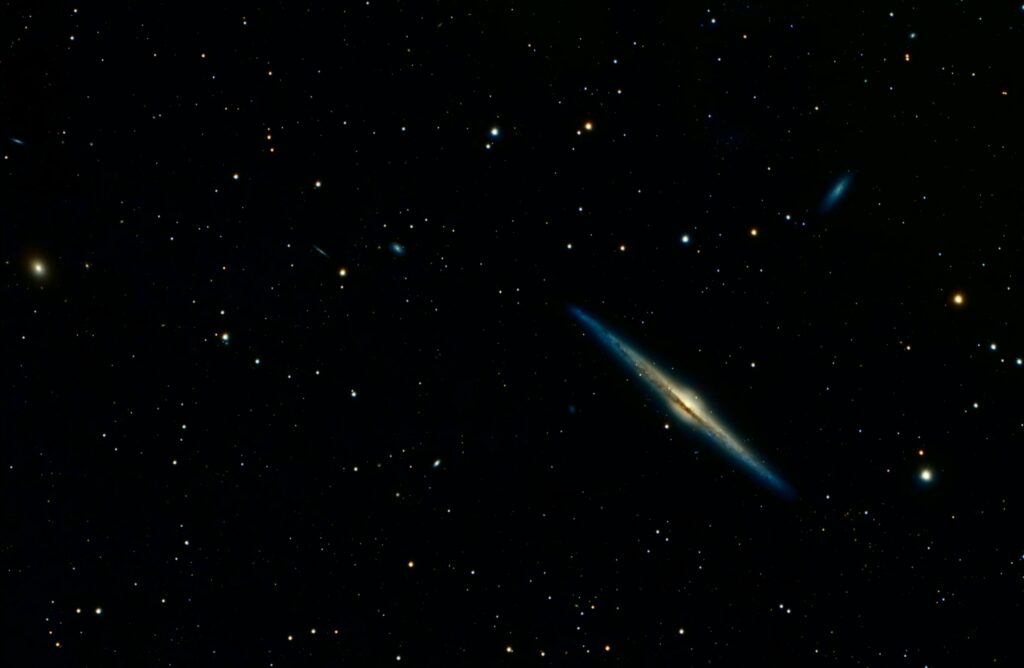Last night, while doing some math research for fun (and isn’t that just like me?), I found out that the universe is flat.
By which I mean: the geometry of space-time has now been measured. It’s within 0.4% of flat-Euclidean, as per expectations arising from our current best theory of the Big Bang.
Some of you reading this might be tempted to reply with “Yeah, kid, we already know. Nice of you to catch up!”
But we *didn’t* know. We only assumed. Until some astronomers figured out an ingenious way to measure it. Here’s how:
– Take the expected size of quantum fluxuations in the early universe, given what we know of the first few attoseconds after the Big Bang.
– Extrapolate to the current age of the universe.
– Look for signs of those fluxuations in the cosmic microwave background. Measure their angular width.
– Compare measurement to prediction.
And the winner is: flat-Euclidean, not spherical, and not hyperbolic. Within the margin of error.

This isn’t the last word: in the future, some new method might be devised, or a more accurate measurement might be made.
But here’s the point that kept me up all night.
In a spherical universe, human mortality and the speed of light prevents us from being able to explore all the universe in a single human lifetime. But supposing both those barriers are overcome*, it may be possible for someone to know all that there is to know. For however far you travel in any direction, you always end up back where you began. You’d always get back home. Science and philosophy could some day end.
But our current best science says we live in a flat-Euclidean universe, where, if the limits of mortality and the speed of light were overcome*, you could explore as much of the universe as you like, and always return home. (Aside: this is also true of a hyperbolic universe.)
And that felt like a comforting thought.
But at the same time, I also troubled. For it also means the limits of our potential knowledge might correspond 1:1 to the limits of our tolerance for fear of the unknown. Anything might be out there. The curvature of spacetme won’t protect us.
The above doesn’t account for dark energy and the accelerating expansion of spacetime. But the correspondence there is that: the further you travel from home, the harder it is to get back. You’d need more energy to return home than you needed to reach your furthest distant point: for in the time it took to travel that far, the line behind you “stretched”, and got longer. The limits of our potential for knowledge might correspond 1:1 to the limits of our tolerance for loneliness.
A few years ago, I studied the math of that, and of the likelihood that some day all matter and energy will be eaten by black holes. That also gave me a few nights of existential dread.
The point is here much like my earlier remarks about the Fermi Paradox. Claims about cosmology correspond to claims about the human condition. I’ve been thinking a lot about those correspondences lately, and wondering if anyone out there feels the same.
*Footnote: those barriers probably won’t be overcome, except perhaps in science fiction.
Link: A flat Universe from high-resolution maps of the cosmic microwave background radiation
Link: Wilkinson Microwave Anisotropy Probe
[Image: Guillermo Ferla, unsplash dot com.]
